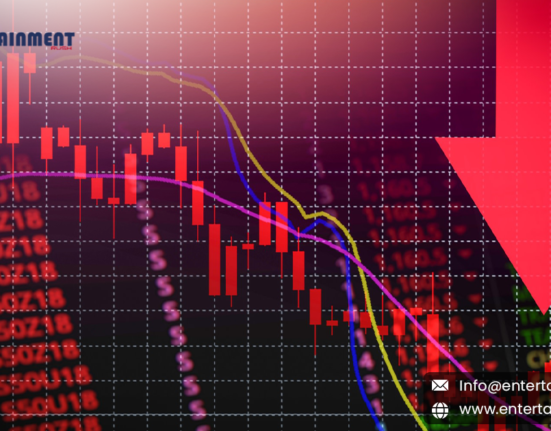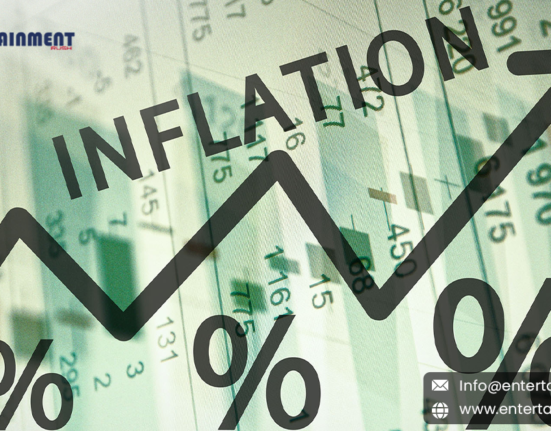The United States’ economy appears to be cooling down early on, according to the International Monetary Fund (IMF), which has lately raised awareness of this. This insight highlights the complexity of the current economic climate and represents a significant departure from the prior narrative of sustained economic progress. As the IMF’s evaluation develops, it offers a crucial prism through which to see the changing dynamics of the American economy and its wider ramifications for the national and international economic environments.
Key Indicators of Economic Deceleration
The IMF is concerned about a number of important indicators that point to a slowdown in economic development. After experiencing a period of robust growth and recovery, the U.S. economy is currently dealing with a number of issues that may indicate a downturn. For example, recent figures indicate a reduction in consumer spending, which has traditionally been the main engine of economic expansion. A number of variables, such as shifting household finances, variations in consumer confidence, and inflationary pressures, are frequently blamed for the slowdown in consumer spending. The ripple effects of these conditions are felt throughout several industries as customers adjust, which might result in reduced economic activity.
Labor Market Trends and Challenges
Another significant factor contributing to the IMF’s observations is the performance of the labor market. While the U.S. has seen impressive job growth in recent years, there are signs that this momentum may be waning. The job creation rate has begun to moderate, and some sectors are experiencing higher levels of unemployment or underemployment. This trend is compounded by ongoing supply chain disruptions and labor shortages, which have posed persistent challenges to businesses and affected their operational efficiency. The interplay between these labor market dynamics and broader economic trends is crucial for understanding the potential trajectory of the U.S. economy.
The Cooling Housing Market
The current state of the economy is significantly influenced by the property market as well. There may be a slowdown in housing activity after a period of sharp price hikes and strong demand, according to recent statistics. Rising mortgage rates have tempered the excitement of prospective homeowners and caused a slowdown in both new building and house sales. Due to its effects on associated industries including construction, real estate, and home goods, this cooling of the housing market may have wider ramifications for economic development. The housing market’s adjustment is indicative of larger economic dynamics and supports the cautious forecast expressed by the IMF.
Inflationary Pressures and Federal Reserve Responses
The IMF’s assessment of the US economy is still heavily influenced by inflationary pressures, which remain a major worry. Even while inflation has dropped from its highest points, it is still a serious problem that impacts both buying power and economic stability. The Federal Reserve’s monetary policy responses, including interest rate adjustments, aim to manage inflation but also have implications for economic growth. One of the main challenges facing policymakers is striking a balance between promoting economic development and containing inflation, and the IMF’s findings highlight the difficulties in doing so.
Global Economic Conditions and Geopolitical Uncertainties
The IMF’s cautious assessment of the U.S. economy is also influenced by geopolitical unpredictability and conditions in the global economy. Due to the interdependence of the world’s markets, changes in the foreign economy can have a big impact on the US economy. International conflicts, trade difficulties, and other world events can affect the U.S. economy and increase the uncertainty that both consumers and companies must deal with..
Navigating the Economic Cooling
The IMF’s observations call for a nuanced understanding of the current economic landscape and suggest that a period of adjustment may be underway. Policymakers, businesses, and investors need to navigate these evolving conditions with a strategic approach that considers both short-term challenges and long-term objectives. To promote stability and development in the economy, it is necessary to closely monitor any possible cooling of the U.S. economy and take appropriate action. An insightful viewpoint on the changing dynamics of the economy may be found in the IMF’s evaluation of the early indications of a cooling off in the US economy. A slowdown is indicated by a number of indicators, therefore stakeholders must continue to be watchful and aggressive in addressing the underlying causes affecting economic performance. The dynamic nature of the global economy highlights the necessity of flexible policies and approaches to effectively manage the intricacies of a shifting economic milieu and guarantee the maintenance of economic robustness.









Leave feedback about this